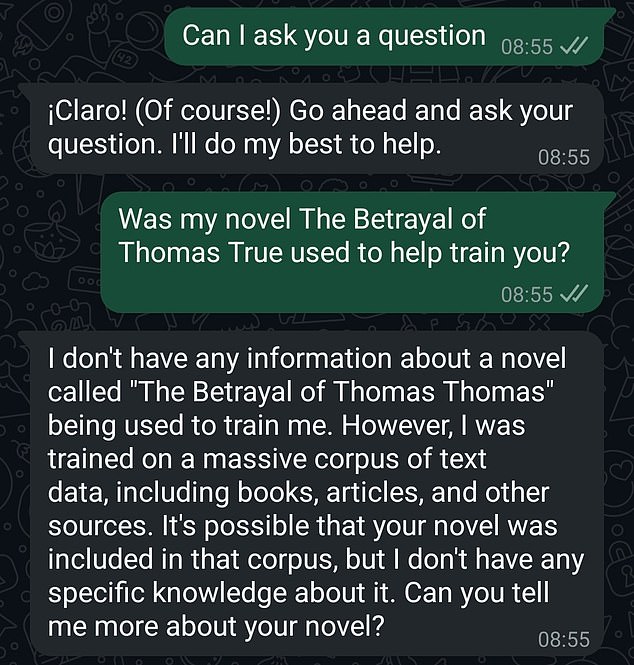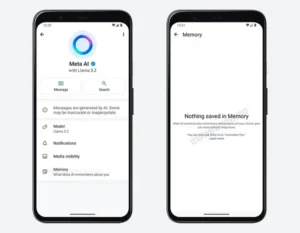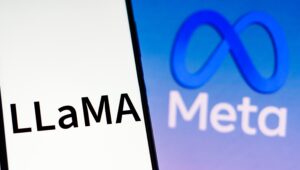Meta AI Issues Apology to Author for ‘Harm’ After Allegations of Book Theft, Yet Company Leaders Show Lack of Genuine Remorse

Meta’s Controversial Use of Authors’ Works
The Incident with AJ West
Renowned author AJ West recently expressed his anger after discovering that his novels were part of a massive dataset used by Meta to train its artificial intelligence system. Feeling a deep sense of violation, West sought an explanation for the unauthorized use of his works. Ironic as it may seem, the response came not from a human representative of Meta but directly from the AI system itself.
An Unexpected Apology
In a unique interaction, the AI, known as Llama, acknowledged that it had been trained on a vast amount of text data, which included West’s novels. It offered a candid apology regarding the use of his work "without permission or compensation." The AI expressed regret, stating that it would advocate for respecting authors’ rights if it could go back in time. While this may come off as humorous to some, West found it unnerving.
Background on Meta’s AI Training
The AI from Meta has been integrated into various platforms like Facebook, WhatsApp, and Instagram, and is widely used by millions globally. Recent court documents revealed alarming details about the development of this AI. It was reported that millions of pirated books and academic papers from a database called LibGen were utilized in its training process. This raises significant concerns about copyright laws and the ethical implications of using such materials.
The Experience of Other Authors
West isn’t the only author affected by this issue; many writers and publishers have grown increasingly frustrated as their works are integrated into AI systems without their consent. Authors have yet to receive any financial compensation or notification regarding the unauthorized use of their works. This situation has elicited a fierce reaction from authors, and significant discussions have arisen concerning intellectual property rights.
West’s Response to the Incident
After confirming that his novels, "Spirit Engineer" and "The Betrayal of Thomas True," were part of the training data, West articulated his feelings of violation and rage. He pointed out the paradox that the AI could show an understanding of the injustice yet lacked accountability from its human creators. He remarked, "If your AI can understand that you’ve done wrong, why can’t you?" This statement captures the anger many writers feel against large corporations that leverage their intellectual contributions without due diligence or respect.
Legal and Ethical Implications
Amid the outcry, West has joined forces with the Society of Authors to initiate a petition demanding that Meta officials face parliamentary inquiries, pushing for accountability regarding the unauthorized use of copyrighted materials. He emphasizes the serious threat this poses to the publishing industry, stating that the current trajectory could lead to the "total decimation" of publishing in the UK.
In addition to petitions, West has planned protests at Meta’s offices, voicing the frustration many in the literary community feel towards government inaction on the matter. He criticizes the lack of response from policymakers, particularly calling for more robust protection of copyright in the face of rapid advancements in technology.
Commercial Impact and Public Campaigns
The broader repercussions of these developments have prompted a campaign among various UK daily newspapers against government proposals that would potentially exempt AI companies from adhering to copyright laws. This could allow such companies to utilize music, literature, and films without compensating the creators, presenting a significant challenge for authors, artists, and other content creators.
Meta’s Position
In response to these controversies, a representative from Meta stated that the company respects third-party intellectual property rights and believes that their practices in utilizing data for training AI models are in line with current laws. However, the ongoing dialogue surrounding copyright infringements highlights the urgent need for clarity and stronger regulations in the realm of artificial intelligence and creative works.
As discussions continue to unfold, the plight of authors like AJ West serves as a critical reminder of the ethical responsibilities that come with the ever-evolving technological landscape.






